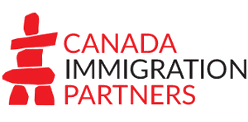Navigating the path to Canadian immigration can be complex. One key factor that can influence your journey is your foreign work experience.
In the Express Entry system, foreign work experience plays a significant role. It can impact your Comprehensive Ranking System (CRS) score, which is crucial for your application’s success.
This article aims to shed light on the importance of foreign work experience. We’ll explore how it’s evaluated and how you can leverage it to enhance your Express Entry profile.
Whether you’re a skilled worker, a professional, or an international student, this guide is for you. It’s designed to help you understand how your work experience abroad can benefit your immigration process.
Join us as we delve into the world of Express Entry and foreign work experience. Let’s uncover the strategies that can increase your chances of a successful immigration application.
What is Foreign Work Experience for the Purposes of Express Entry?
Foreign work experience as defined by IRCC ;
- Must be considered skilled under the National Occupation System (NOC);
- Full time at least 30 hours a week, part time equivalency is allowed, though not in qualifying for FSW;
- Work Experience must be paid, it can’t be voluntary;
- It must have been obtained on a valid work permit if not obtained from your home country;
- It can’t be obtained while you were a full time student.
Understanding Express Entry and Foreign Work Experience
The Express Entry system is a pathway for skilled workers to immigrate to Canada. It’s a points-based system, where applicants are ranked based on their profile.
Foreign work experience is one of the factors considered in this ranking. It can significantly influence your CRS score, which determines your position in the Express Entry pool.
Here are some key points to understand about Express Entry and foreign work experience:
- Foreign work experience can earn you points in the CRS.
- The type and duration of your work experience can affect your score.
- Work experience must be in a specific occupation listed in the National Occupational Classification (NOC) and meet requirements of Training, Education, Experience and Responsibilities (TEER) required for that occupation.
The Comprehensive Ranking System (CRS)
The CRS is a points-based system used in Express Entry. It’s designed to assess and score your profile based on several factors.
Foreign work experience is one of these factors. It’s evaluated alongside other elements like education, language proficiency, and Canadian work experience.
The higher your CRS score, the better your chances of receiving an invitation to apply for permanent residency.
Federal Skilled Worker Program (FSWP) vs. Canadian Experience Class (CEC)
The FSWP and CEC are two programs under the Express Entry system.
CEC requires skilled Canadian work experience as part of the qualifying criteria.
This means that CEC has the advantage of awarding points for Foreign work experience and Canadian work experience in the skills transferability section of the CRS score calculation.
Whereas the typical FSW’s does not have Canadian work experience and thus is not eligible for the additional points.
In both CEC and the FSWP, foreign work experience can earn you up to 50 points, in the foreign work experience and language section, provided you have 3 years of qualifying skilled work experience and Canadian Language Benchmark (CLB) 9.
Understanding these differences can help you strategize your Express Entry application.
Evaluating Your Foreign Work Experience
Evaluating your foreign work experience is a crucial step in your Express Entry application. It’s not just about the number of years you’ve worked. The nature of your work and the skills you’ve gained also matter.
Here are some key points to consider when evaluating your foreign work experience:
- The type of work you did: Was it managerial, professional, or technical?
- The duration of your work experience: How many years did you work in your field?
- Was the work experience paid? Was the pay commensurate with the skills, education, experience required for the position?
Documenting Your Foreign Work Experience
What Needs to Be in Your Work Experience Letter
It is critical that these letters contain the information that IRCC is looking for to validate your work experience as being skilled and qualifying under Express Entry.
These letters should be written as formal documents and printed on company letter head and signed by an authorized authority.
More documentation may be required such as paystubs and tax returns at a later date.
The letters should cover the following in detail;
- the applicant’s full name;
- the employer’s email address, telephone number and physical address;
- the name, title of the signature holder
- job title for all the positions held, detailed duties and responsibilities, this will be cross reference with the NOC code chosen in your application;
- start and end dates of employment, any periods of unemployment;
- the number of hours worked per week and wages/salary and benefits;
- include any relevant certifications or licenses;
- in cases where the applicant is self employed; evidence of business ownership, tax documents and evidence of income must be provided as well as documentation from third party clients detailing the services or goods provided and the renumeration.
The Role of the National Occupational Classification (NOC)
The NOC plays a significant role in how your foreign work experience is evaluated. It’s a system used by the Canadian government to classify jobs based on the type of work a person does and the tasks they perform.
Your job must be listed in the NOC for your work experience to be considered. The NOC code assigned to your job can also affect your CRS score and whether you qualify for Category Based Express Entry.
Strategies to Enhance Your Express Entry Profile
There are several strategies you can employ to enhance your Express Entry profile. One of the most effective ways is to gain more work experience. This could be either in Canada or abroad.
Another strategy is to improve your language proficiency. Proficiency in English or French can significantly boost your CRS score. It’s also beneficial in the Canadian job market.
Lastly, consider getting higher education. Having a degree, diploma, or certificate from a Canadian institution can give you an edge. It can also increase your CRS score.
Improving Your CRS Score
Improving your CRS score is crucial for increasing your chances of receiving an invitation to apply for permanent residency. One way to do this is by gaining more skilled work experience.
Another way is by improving your language skills. The CRS awards points for proficiency in English and French. So, investing time in language learning can pay off.
Lastly, consider pursuing further education or obtaining additional certifications in your field. These can add valuable points to your CRS score.
Common Mistakes and How to Avoid Them
One common mistake is not properly documenting your foreign work experience. It’s crucial to provide accurate and detailed information. This includes job duties, duration, and employer details.
Another mistake is overestimating your language proficiency. Be honest about your language skills. Misrepresentation can lead to application refusal or even a ban from the Express Entry system.
Lastly, many applicants fail to update their profile regularly. Keep your profile up-to-date. This includes any changes in work experience, education, or language proficiency. It ensures your CRS score is accurate and maximizes your chances of success.
Conclusion: Maximizing Your Immigration Prospects
Foreign work experience can significantly enhance your Express Entry profile. It not only boosts your CRS score but also increases your employability in Canada. Therefore, it’s essential to effectively leverage this experience.
However, navigating the Express Entry system can be complex. It’s crucial to understand the requirements and stay updated on policy changes. This will help you avoid common mistakes and maximize your immigration prospects.
You can learn more about Express Entry and the answers to commonly asked questions at our explainer page.
In conclusion, foreign work experience is a valuable asset for Express Entry. With careful planning and strategic decisions, you can turn your international experience into a successful immigration journey
Why Trust Canada Immigration Partners
We are a one-stop solution for all your Canada immigration needs. Find out more about us and our immigration services.
Canada Immigration Partners has been established since 2008 and has successfully settled hundreds of individuals and families in Canada. We are owned and operated by Matthew Sell and Miho Shimizu, experienced and Regulated Canadian Immigration Consultants.
Crystal Clear Pricing
While other firms obscure the true cost of their services, CIP keeps things crystal clear. Consulting services cost as little as $199 CAD, and partnership prices are always negotiated in advance, making budgeting a painless process.
The Personal Touch
You’ll never get lost in the shuffle at CIP. We treat every customer with the same level of attentiveness and care. While larger firms may offer immigration services as a mere aside, we are fully dedicated to you and your journey.
Fully Regulated
You can rest assured knowing that your application is in the hands of experienced professionals. Canada Immigration Partners’ consultants are regulated by the College of Immigration and Citizenship Consultants and are members of the Canadian Association of Professional Immigration Consultants.





